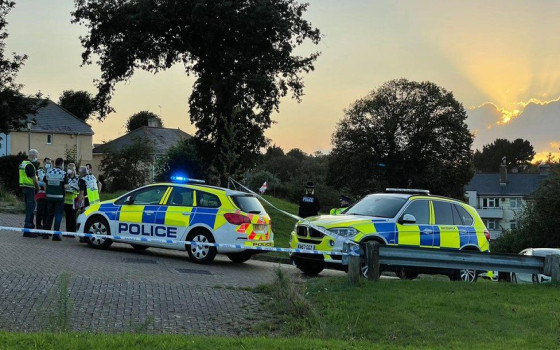
Britain: Police officers resort to the food bank... and 100,000 employees participate in a general strike

- Europe and Arabs
- Thursday , 12 January 2023 18:25 PM GMT
Brussels: Europe and the Arabs
In light of the strikes in the country and the controversy over living conditions, Sir Mark Rowley, commander of the largest police force in the United Kingdom, expressed his concern about an increasing number of officers resorting to food banks in Britain after their salaries fell over the past decade, indicating that the matter is A grave reference to the difficulties the officers had to make ends meet.
Sir Mark Rowley, the Metropolitan Police's commissioner, said that while the police did not wish to strike, they were "disappointed" at the way their living standards had deteriorated in recent years.
In an interview with BBC Radio, Rowley said: "I am worried about the cumulative effect of the pay challenge over many years. I think frontline officers have lost about 14% in real terms over a decade," he added: "Not They want to strike, but they are frustrated."
He continued, "I've seen data on police officers using food banks, which is really concerning. These issues are a huge concern for me.. They're doing a great job. We've got officers giving us trouble and we're pushing through that. But I've got tens of thousands of guys." Women who really care about London and are deeply committed to the mission of helping people and taking on dangerous criminals."
Rowley highlighted his desire to improve their circumstances, saying, "I need to do everything in my power to set them up for success. Part of that is that they feel they can make ends meet. All the data says some of them are having a hard time."
Sir Mark's warning comes as the government faces a wave of industrial strikes across the public service - from the railways to NHS nurses - with unions demanding pay rises commensurate with the rising cost of living.
It is illegal for UK police to strike.
More than 100,000 civil servants in Britain will join a 24-hour strike on February 1 in an escalating move by PCS, the UK's sixth-largest trade union, with most of its members working for British government departments and other public bodies.
According to the BBC, union members will take action across 124 government departments. The strikes will take place on National Labor Day for the TUC, a union federation of trade unions in England and Wales, which represents the majority of unions and has 48 unions, with a total of around 5.5 million members. It will be the largest civil service strike for many years, escalating A month of strikes over salaries, pensions, layoffs and job security.
Mark Sirotka, PCS, warned that ministers would need to make an offer of more money if they were to avoid a strike. He said: "Over the past month, when thousands of PCS members across a range of departments took a sustained industrial strike, the government said it had no money but had managed to find millions of pounds to spend on managers and military personnel in an unsuccessful attempt to cover the vital work our members do."
He added: "We have warned the government our dispute will escalate if they don't listen - and we stand at our word. We will not stand idly by as hardline Tory MPs like Richard Drax said our hardworking members should be grateful for jobs."
He continued: "I'll be meeting with the Cabinet Office minister, Jeremy Cowen, on Thursday - if he puts some money on the table, there's a chance this row will be resolved. If he doesn't, he'll see public services from benefits to driving tests, from passports to driving licences, From ports to airports affected by the industrial strike on February 1.
The BBC reported that the government had urged public sector unions to suspend a planned industrial strike in return for talks on "fair and affordable" settlements for the next financial year, but this was dismissed as a "hollow" demand at a time of rising inflation.
Source: The Seventh Day website












No Comments Found